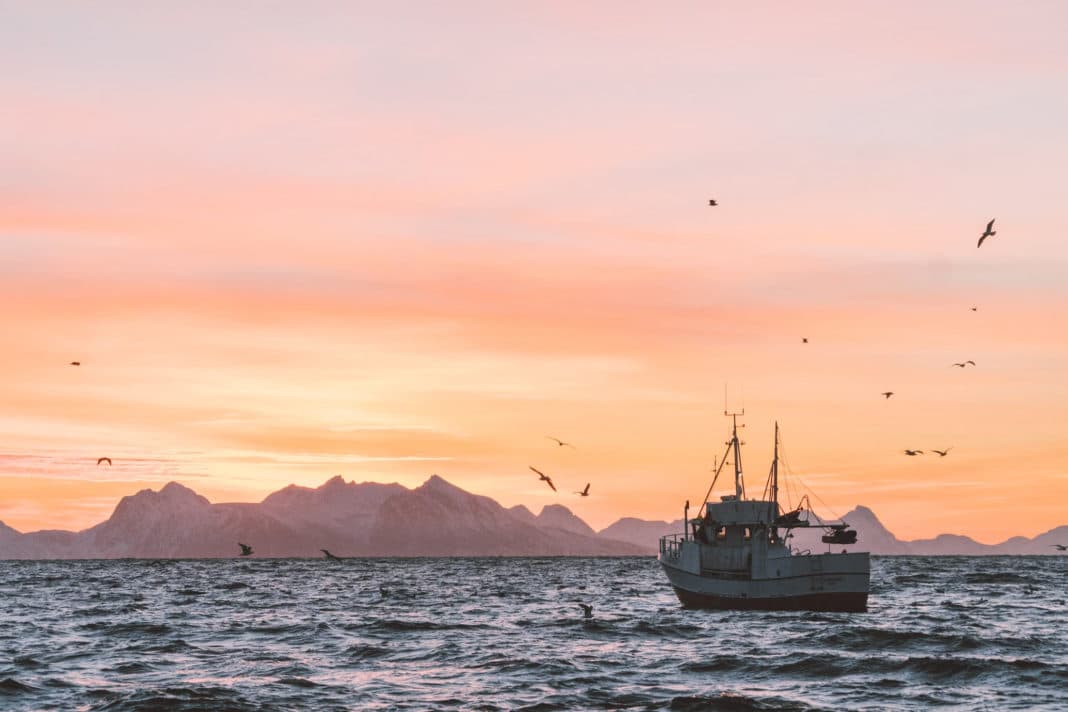Ever since 1988, the EU and Morocco have maintained agreements that allowed Spain to fish off the Moroccan coastline. The latest iteration of the EU-Morocco Fisheries Partnership Agreement (FPA) expired in the summer of 2023 – here’s why it’s important and what that means for European fishing vessels.
Source: Unsplash
The Importance Of Agreed Fishing Policy
The act of fishing is often considered trivial and calming, though fishing policy is actually quite important. A lot hinges on these policies culturally, economically and even as a matter of suppressing potentially dangerous clashes over fishing rights.
Culture
Culturally, fishing is a hobby and industry that has captured the public imagination in the past. This is especially the case for coastal cities and towns, and the territories that have relied on their fishing output. Even in industries far from the water, art and media has been inspired by fishing and its economic importance. English artist J. M. W. Turner’s marine inspirations have been well-documented while online sectors like iGaming have also based products on fishing. In that industry, slots come with many different themes inspired by cultures, traditions and occupations, resulting in games like Fishin’ Frenzy Megaways. While industries like art painting and iGaming received inspiration, places closer to the coast have often based their whole identity on their proud working-class sailors who trawl nearby waters.
Economy
That brings us to economic importance – fishing policies often involve subsidies to incentivize sailor activity. The strength of those subsidies, and the capacity of fish that can be captured and sold in bulk, are all dictated by policies agreed upon by two nations. Traditionally, a nation that allows others into its waters will get the lion’s share of the fish resources while visiting vessels have catch limits.
Sustainability & Peace
Those catch limits address sustainability concerns. Just as overfishing a lake can rob it of fish life, industrialized fishing of a nation’s waters can leave it underpopulated in the future. In fishing agreements, both parties agree to not take excess fish from the waters, along with other stipulations like avoiding unsustainable equipment and methods.
Lastly, there have been conflicts over fish access. For Europeans, the most famous of these were the dramatic Cod Wars between British and Icelandic vessels. If left undeclared, nations run the risk of vigilante clashes between vessels from those different countries. If those clashes are left unchecked, the issue could intensify to include military navies and coast guard vessels as happened between the 1950s and ‘70s in the waters north of Britain.
The EU-Morocco FPA
After Spain joined the European Economic Community in 1986, the EC pursued the very first fisheries agreement with Morocco in 1988. Since then, the agreements had been reviewed and redrafted into a near-constant agreement between the EU and the Kingdom of Morocco. In its simplest form, they allowed EU fisheries to claim 120+ licenses and take 6,000 tons of fish from its waters. Due to its proximity, most (90+) of those license holders were fisheries based in Spain, though not all licenses were frequently exercised.
Access to Moroccan and Western Saharan waters provided a great deal of business to EU fishermen. The latest iteration of the deal was taken to the European Court of Justice by representatives of Western Sahara, who were not included in the negotiations. This group – the Polisario Front – won several rulings based on the fraught matter of Moroccan claims over Western Sahara territories.
Due to ongoing ECJ challenges from Western Sahara, the EU allowed this current iteration of the FPA to expire on the 17th of July 2023. In reaction, Spanish fisheries have independently made agreements with the Polisario Front. Awaiting the results of the latest round of ECJ rulings, the Commission have committed to renegotiations of this historic deal in the future.
🇲🇦🇪🇺@EU_Commission reaffirms the utmost importance of the partnership with #Morocco in #fishing, emphasizing on mutual trust, solidarity, and shared interests.
👉A global and mutually beneficial alliance for regional stability and prosperity! 🐟🤝https://t.co/ihw0qKLJlu— MoroccoAM2023 (@MoroccoAM2023) July 27, 2023





